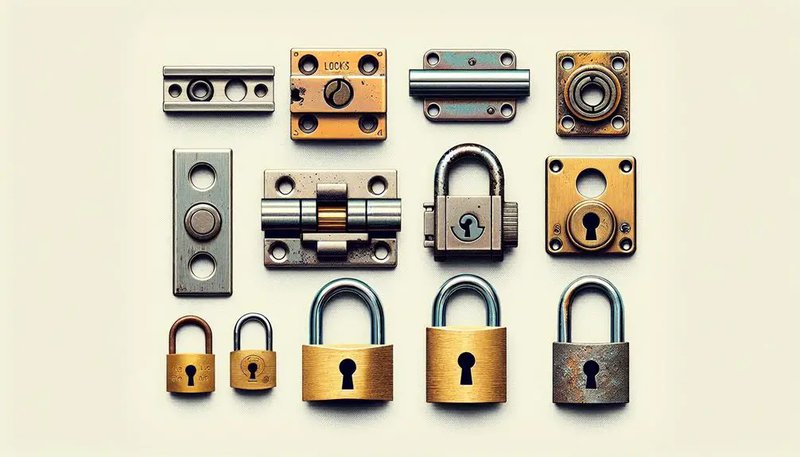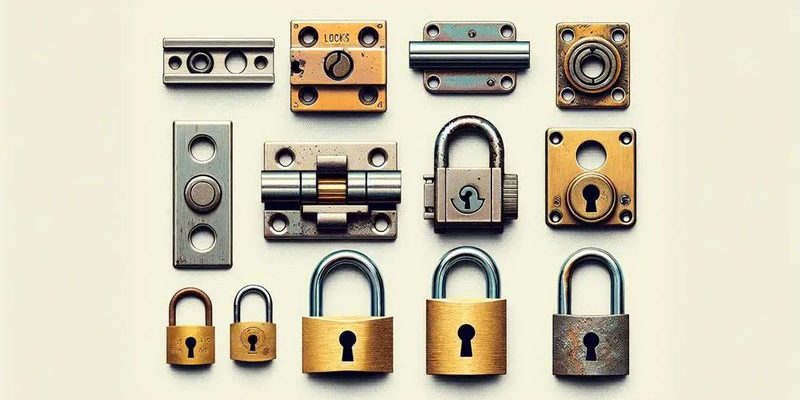
Think of your door latch as the gatekeeper of your home. When it works properly, it provides peace of mind, but when it misbehaves, it can leave you scratching your head. If you have a specific brand or type of latch in mind, don’t worry—we’ll cover common causes and solutions that apply to most types, from traditional latches to modern smart locks. Let’s explore how to troubleshoot a door latch that locks randomly, so you can regain your sense of security and ease.
Understanding How Your Door Latch Works
A door latch operates quite simply, yet effectively. When you turn the doorknob, the latch moves to either secure the door or allow it to open. Essentially, it’s a simple mechanism—until it starts acting up. You might be wondering what could cause it to lock unexpectedly.
There are several parts to a standard latch: the latch bolt, the strike plate, and the doorknob. If one of these components is misaligned or damaged, it can lead to random locking. A good way to visualize this is to think of a train on a track; if the track is bent or broken, the train won’t run smoothly. Similarly, if your door latch isn’t aligned correctly, it can create issues.
Weather changes can also play a role. Wooden doors can swell in humidity and shrink in dry weather, affecting how the latch operates. This means that your door may lock when it shouldn’t, or worse, stay unlocked when it should be secured. Keeping these factors in mind can help you pinpoint the issue.
Common Causes of Random Locking
You might be facing a few common culprits when your door latch starts locking unpredictably. Let’s break them down one by one so you can understand what you’re up against.
- Misalignment: Over time, the latch can become misaligned with the strike plate. This means that when you try to lock or unlock it, the latch doesn’t engage properly. A slight adjustment could make a huge difference.
- Worn Parts: Components within your door latch can wear down over time. If the internal mechanism is rusted or broken, it might be time for a replacement. Remember, like any machine, door latches can wear out.
- Temperature Changes: As mentioned earlier, temperature swings can affect your door’s materials. Especially with wooden doors, constant expansion and contraction can lead to fit issues that cause the latch to lock involuntarily.
- Faulty Key or Remote: If you have a keyless entry system, there might be glitches in the remote or key code. Sometimes a simple reset can solve the problem.
Understanding these common issues can help you determine the next steps in troubleshooting your door latch.
Step-by-Step Troubleshooting of Your Door Latch
Now that we know what could be causing the random locking, let’s figure out how to troubleshoot it. Here’s a straightforward step-by-step guide to help you along the way.
Step 1: Check for Misalignment
Begin by inspecting the alignment of the door and door frame. When the door is closed, look to see if the latch lines up properly with the strike plate. If you notice any gaps or misalignment, you can adjust the screws on the hinges slightly to bring the door back into proper alignment. Even a small shift can sometimes resolve the issue.
Step 2: Inspect the Latch for Wear and Tear
Next, take a close look at the door latch itself. Any signs of rust, corrosion, or wear can indicate it’s time for a replacement. If you feel comfortable doing so, remove the latch and examine its inner workings. If parts are broken, you can typically find replacements at your local hardware store.
Step 3: Test Under Different Conditions
To see if temperature changes affect your latch, try locking and unlocking the door at different times of the day. If it works smoothly at some times but not others, the weather might be a factor. Adjusting your environment, like using a dehumidifier in the summer, can sometimes help keep your door functioning well.
Step 4: Resetting Electronic Keyless Systems
If you have a smart lock or keyless entry, it might be worth resetting it. Follow the manufacturer’s instructions to reset the device. This can often clear up glitches and ensure that your remote syncs properly with the lock. You’d be surprised how often this simple fix does the trick!
When to Call a Professional
After you’ve tried the troubleshooting steps, you might still find yourself facing issues. Here’s the thing—you shouldn’t feel bad about reaching out for help. Sometimes, a door latch can be a complex mechanism that requires a professional’s insight.
If your door latch is still locking randomly after taking these steps, it could indicate a deeper issue with your door frame or latch system. A locksmith can assess the overall condition and suggest necessary repairs or replacements.
Let’s not forget that a malfunctioning door latch could compromise your home security. It’s always better to be safe than sorry, so don’t hesitate to contact a pro if you have any doubts.
Preventative Measures for a Smooth-Operating Door Latch
Once you’ve resolved the issues with your door latch, it’s wise to take a few preventative measures. Just like regular check-ups for your health, your door might need some routine maintenance too.
- Lubricate Regularly: Using a silicone-based lubricant on the latch and keyhole can keep everything moving smoothly. Just spray a little on and wipe off the excess.
- Check the Alignment Periodically: Make it a habit to check the door’s alignment every few months, especially with changing seasons.
- Consider Upgrades: If your door latch is old, consider upgrading to a more reliable model, such as a smart lock with better reliability records.
By taking these steps, you can help ensure your door latch stays reliable and secure for years to come.
A door latch that locks randomly can be a frustrating experience, but it’s usually solvable with a little patience and effort. By understanding how the latch works, identifying common issues, and following our troubleshooting steps, you’ll be well-equipped to tackle the problem.
Remember, maintaining your door latch isn’t just about convenience; it’s about your home’s security as well. Keep an eye on its performance and don’t hesitate to reach out for help if needed. Your peace of mind is worth it, and a properly functioning door latch is the first line of defense for your home.
